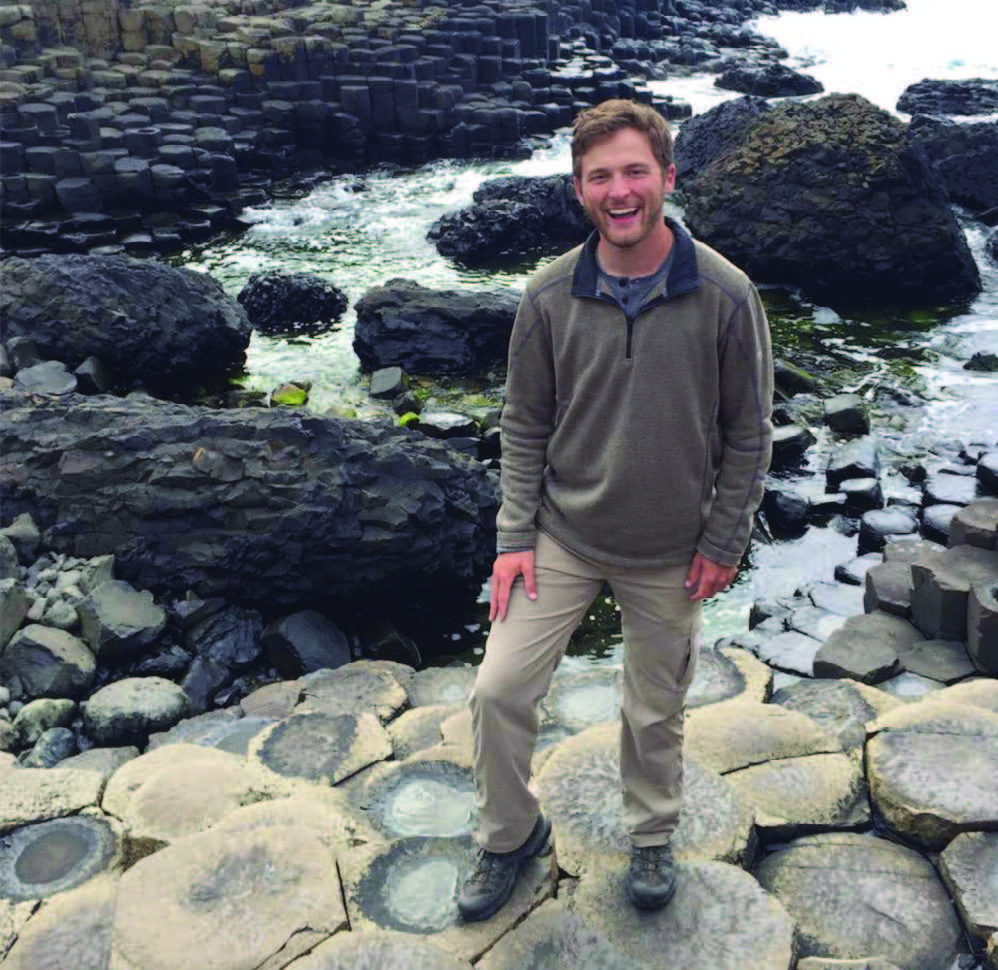 My earliest memory of geology is looking through my father’s telescope at the full moon on a crisp autumn night. The town we lived in at the time had little light pollution, and it afforded a wonderfully unobscured view of the night sky. Stepping on my tiptoes to gaze through the eyepiece, transported a world many thousands of miles away to directly in front of me. I observed the deep gouges and craters carved on the lunar surface from innumerable debris impacts. Canyons snaked across the moon in seemingly random patterns. Ancient mountains stood as lonely sentinels guarding the secrets of their formation from all but the most curious eyes. After that night, my imagination was piqued, and I would do anything in my power to find out more about the world around me through science.
My earliest memory of geology is looking through my father’s telescope at the full moon on a crisp autumn night. The town we lived in at the time had little light pollution, and it afforded a wonderfully unobscured view of the night sky. Stepping on my tiptoes to gaze through the eyepiece, transported a world many thousands of miles away to directly in front of me. I observed the deep gouges and craters carved on the lunar surface from innumerable debris impacts. Canyons snaked across the moon in seemingly random patterns. Ancient mountains stood as lonely sentinels guarding the secrets of their formation from all but the most curious eyes. After that night, my imagination was piqued, and I would do anything in my power to find out more about the world around me through science.
I soon found out that geology was the perfect fit for an aspiring scientist. Spurred on by several influential geoscientists in my high school and undergraduate career, I realized I wanted to study at the graduate level how rocks change and deform over
time. I brought my childhood fascination with me as I began to apply my love of science to geologic questions. My journey led me to study fracture propagation in Penn State’s Rock and Sediment Mechanics Laboratory with Chris Marone, professor of geosciences. My graduate research involved performing hydraulic fracturing experiments at the laboratory scale coupled with ultrasonic monitoring techniques. By sending elastic waves across a fracture as it grows, new insights into how open or closed the interface is can be determined. Fracture behavior is still a subject of intense research for industry applications, and I hope to one day apply the knowledge of geophysics I’ve developed to a career in industry and teaching.
The coursework I engaged in at Penn State also helped me become a stronger young professional. Enrolling in the Imperial
Barrel Award competition, led by Liz Hajek, associate professor of geosciences, who served as our team’s adviser, gave me a
detailed look at how critical a geoscientist’s input is to any oil and gas exploration effort. My research and classwork at Penn
State allowed me to develop quantitative research skills, such as computer programming and critical thinking. Looking back, I
couldn’t have developed these skills as fully anywhere else.

